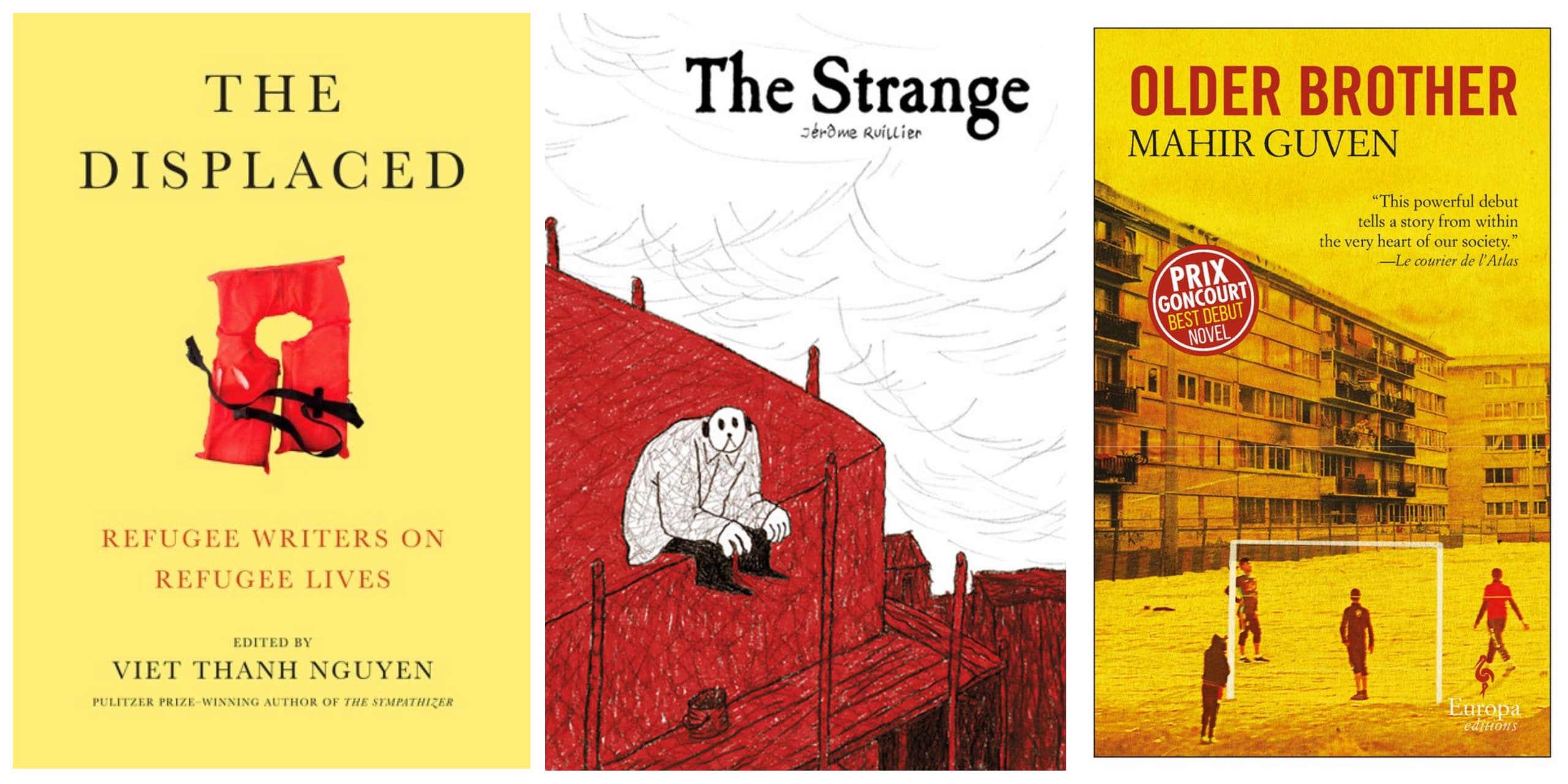Advertisement
The WBUR Read-In: Borders and belonging

In the introduction to the book “The Displaced: Refugee Writers on Refugee Lives,” Viet Thanh Nguyen makes a searing observation. He explains, “When it comes to justice, it does not matter whether those in a host country think they have no obligation to refugees.” He goes on to say, “We should remember that justice is not the same as law.” Refugee camps and holding areas like it are a kind of purgatory (which, after all, is a punishment) for people who have not committed a crime. In the past few weeks, this tension between what is just versus what is legal has been front and center in local and national news.
Recently, a woman who has been identified as working for Florida Gov. Ron DeSantis lured 49 migrants onto planes heading to Martha’s Vineyard. Some have stayed in Massachusetts, and others have gone elsewhere. A criminal investigation has been opened against the DeSantis administration, creating an opportunity for those who were flown to Massachusettes to apply for a visa that allows them to remain in the United States while their case is underway. While the outcome is not the worst that could have happened, there is no situation in which humans being used as political pawns is just.
According to the U.N., there are 27.1 million refugees and 53.2 million internally displaced people in the world today. That’s a massive amount of people, and that number is likely to continue to grow. Thanh Nguyen says that while literature alone does not change the material world, it can help us to hear more clearly. So this week, I have recommendations for books on borders, refugees and belonging.
'The Displaced: Refugee Writers on Refugee Lives'
Edited by Viet Thanh Nguyen
This book has stuck with me since I read it sometime during college. Specifically, the chapter by Maaza Mengiste called “This Is What the Journey Does.” The story is told from the perspective of the author as she watches a young East African man in Florence, Italy. He begins to spin, laugh and talk to himself to be seen, and acknowledged. It’s a moving memory in which the author is linked to the man, and she masterfully manages to link the reader to him, as well. “The journey is designed to test the body’s resilience. Its intent is to break a human being and rearrange them inside… You do not arrive the same as when you left,” writes Mengiste. The book is broken up into 19 chapters of essays by writers who have been refugees themselves. The stories are moving, but even more so, a call to action and discussion.
'The Strange'
By Jérôme Ruillier
This graphic novel is Ruillier’s first to be translated into English, and it tells the story of a migrant in a new country through the perspective of those around him. The author collected accounts from migrants through a friend who works for the French charity Réseau Éducation Sans Frontières to create the novel. All of the characters in this book are animals who live like humans, although we don’t know which country they are in or where the main character has fled from. A crow spots the central character as he boards a train and can see that he’s afraid, an alligator sits next to him on his journey and attempts to give him directions and a frog spots him as he walks aimlessly and recklessly through his new city. While sketches of animals may sound juvenile, the story is anything but. The central character, who is called “a strange” by those in his new city, has little say in his own story. He is watched, projected onto and cast out. A note at the end from Amnesty International states: “...by avoiding specificity, ‘The Strange’ sheds light on issues of xenophobia, immigration and discrimination all across the globe.” While vague, the story is emotive and sobering.
'Older Brother'
By Mahir Guven
Guven’s debut about a French-Syrian family won the Goncourt First Novel Prize in 2018. It’s a thrilling book that focuses on the difficulties of assimilating into a country that is hostile to you. The story is told through two generations: a pair of brothers raised in the outskirts of Paris and their Syrian immigrant father. The father, an atheist taxi driver, has raised sons that are, in many ways, his opposites. When the younger brother leaves France to volunteer as a medic in Syria for a Muslim NGO, the family begins to fall apart. Family and friends have suspicions about what the younger brother is actually doing in Syria. And issues at home are exacerbated by the older brother’s job as a rideshare driver, which is in direct opposition to the career of his father. This story is about how the pressures of life on the margins can manifest in family dynamics. Guven’s writing is fast-paced, and he uses dark humor to tell hard truths.
Additional reading & listening:
- "Detention By Design," a new podcast from WLRN in Miami on the history of America’s relationship with immigration detention centers.
- The latest on the Venezuelan migrants who were sent to Martha’s Vineyard.
- A story from the Atlantic about the World’s Refugee System.
